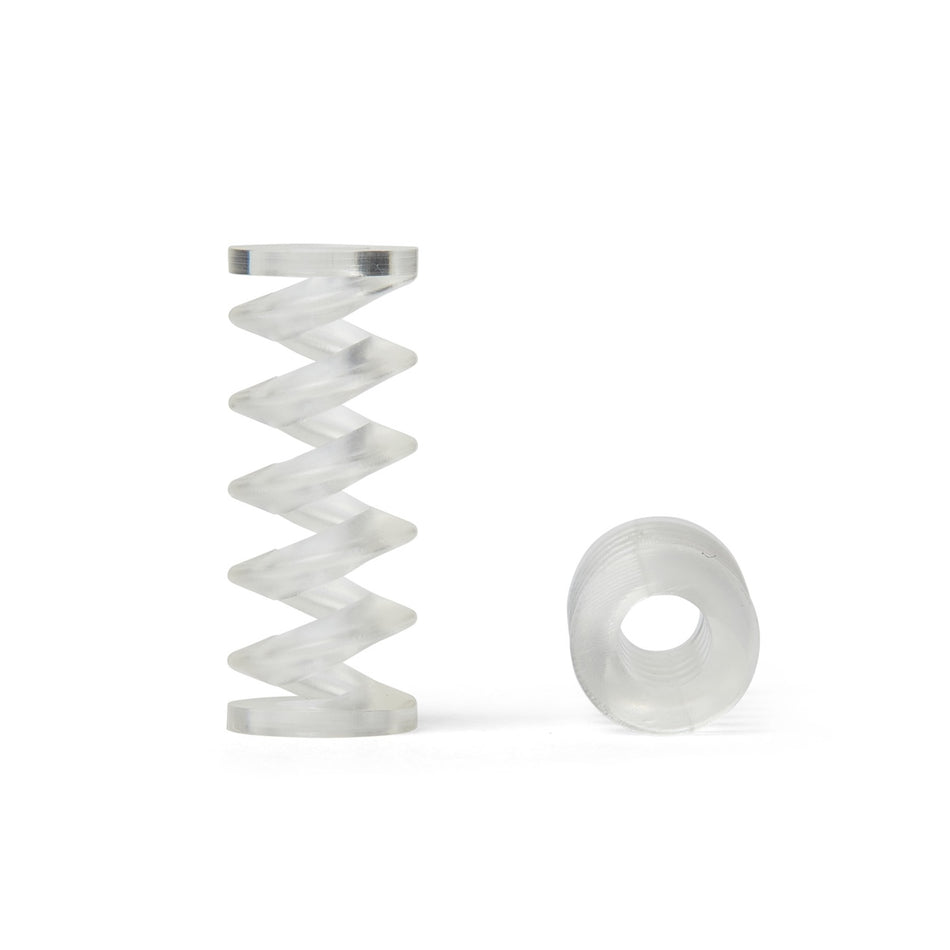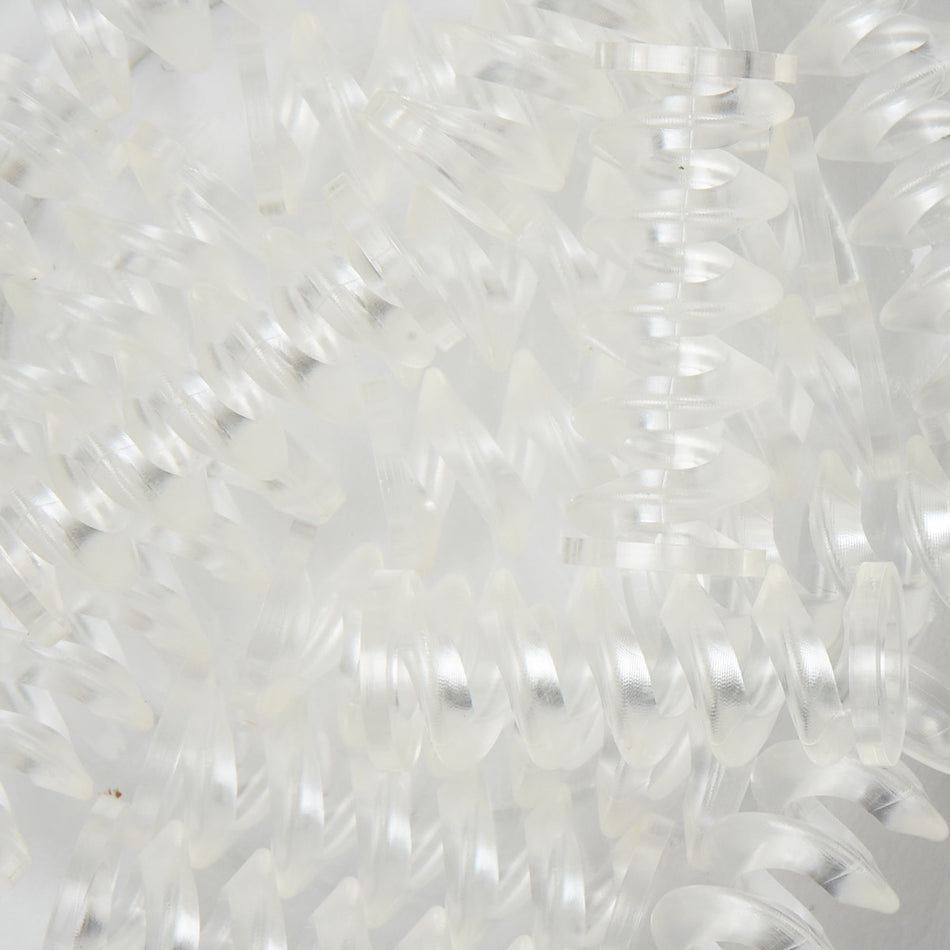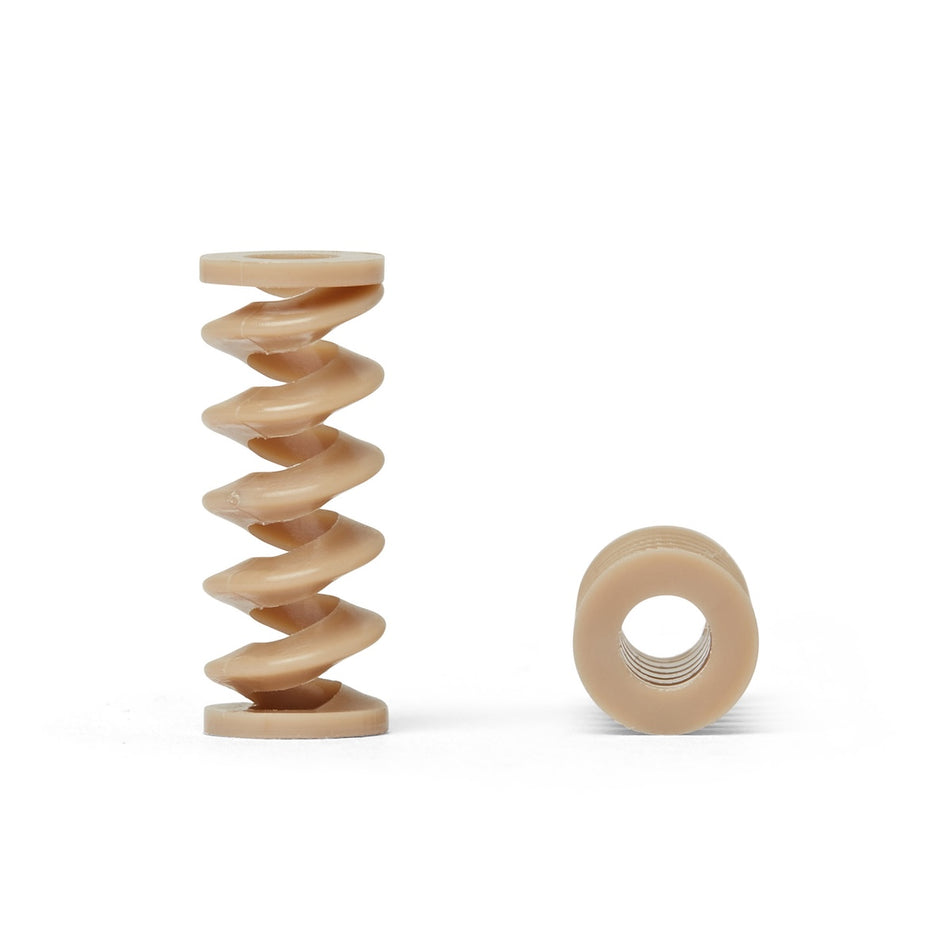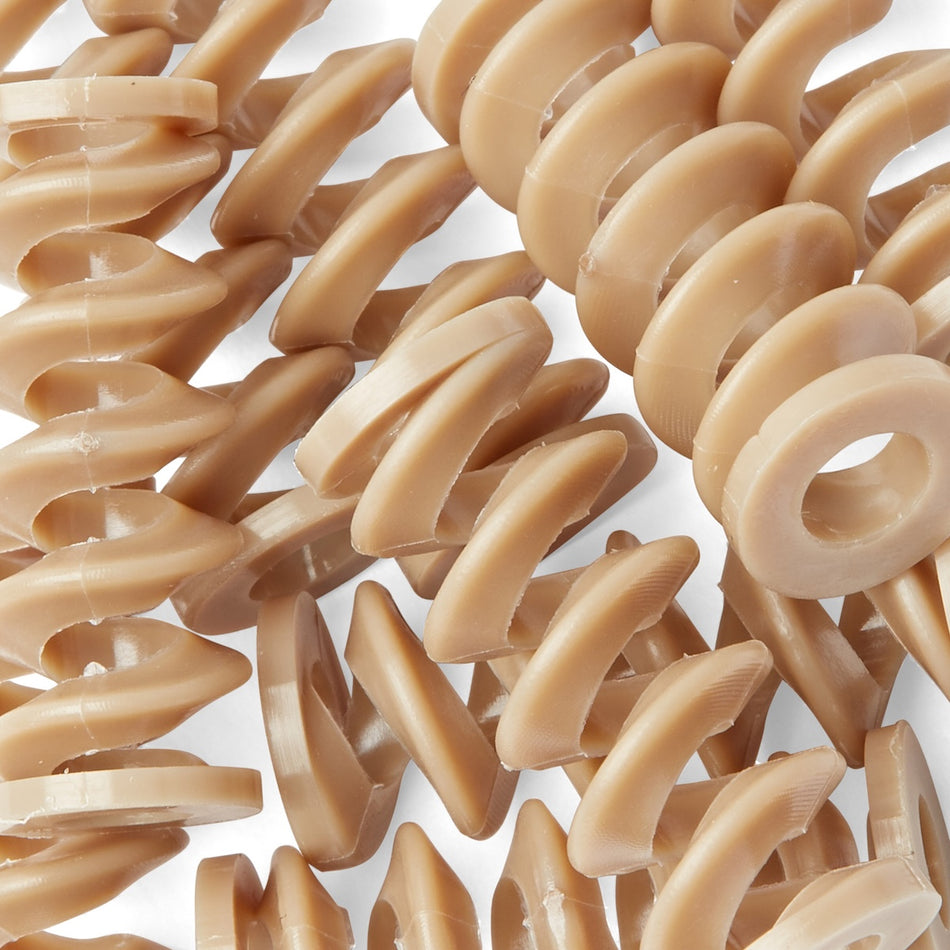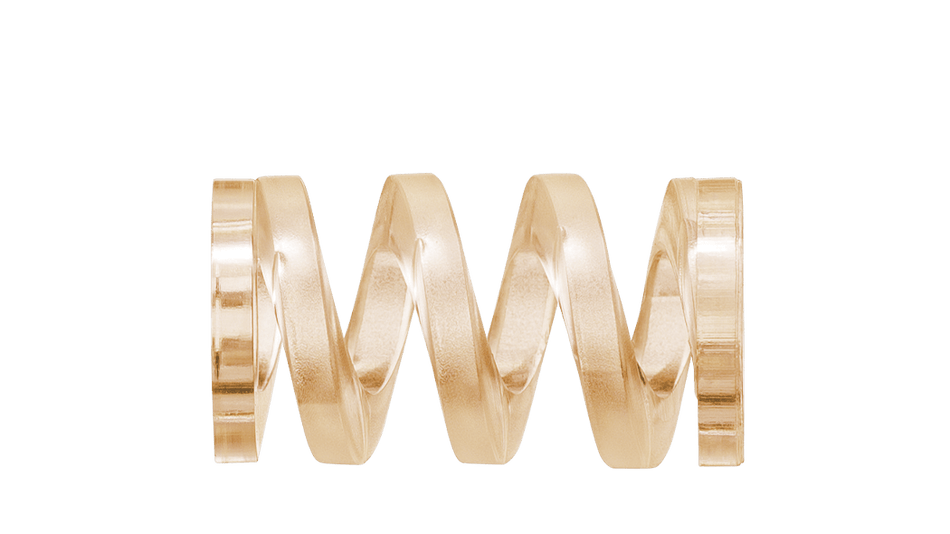10 Producten
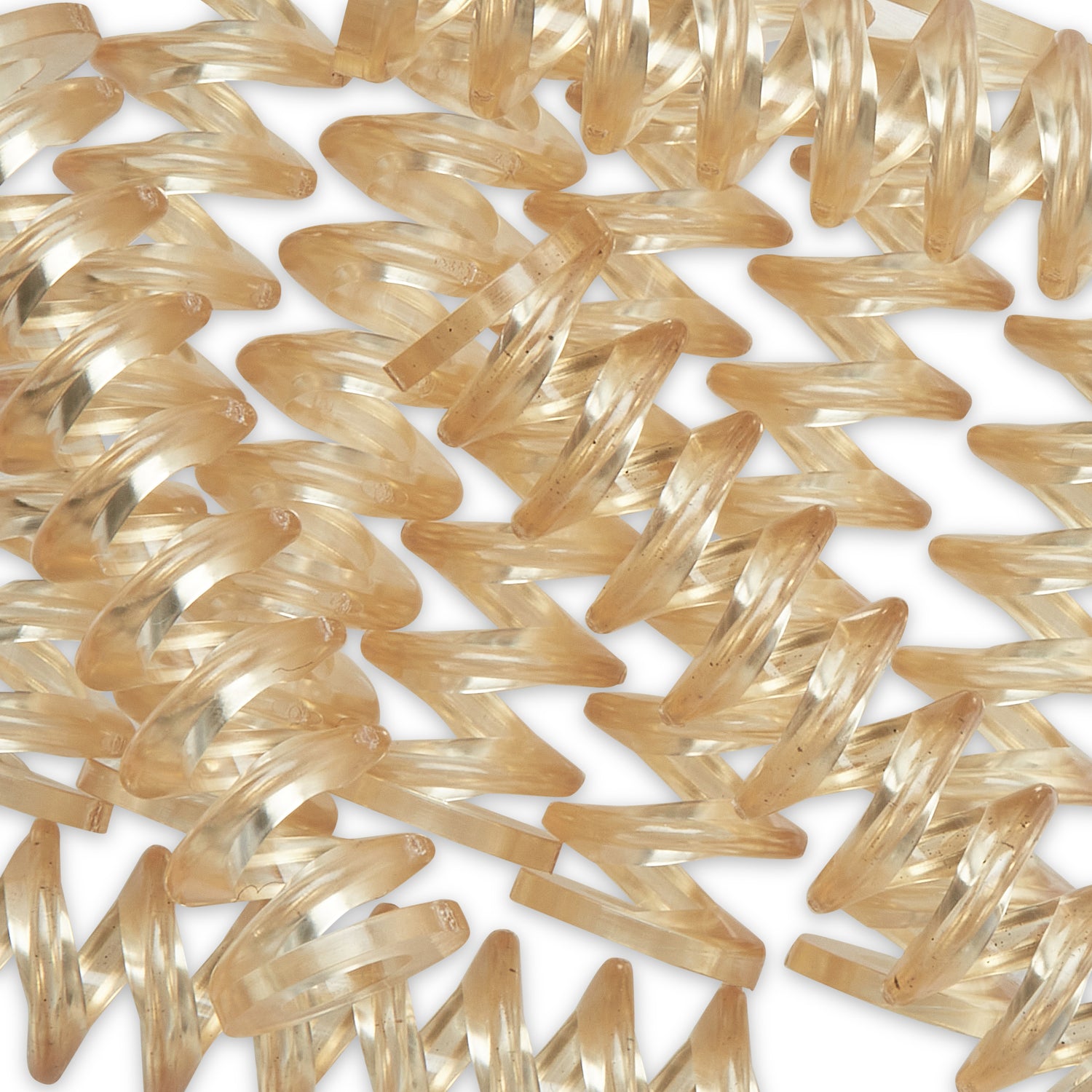
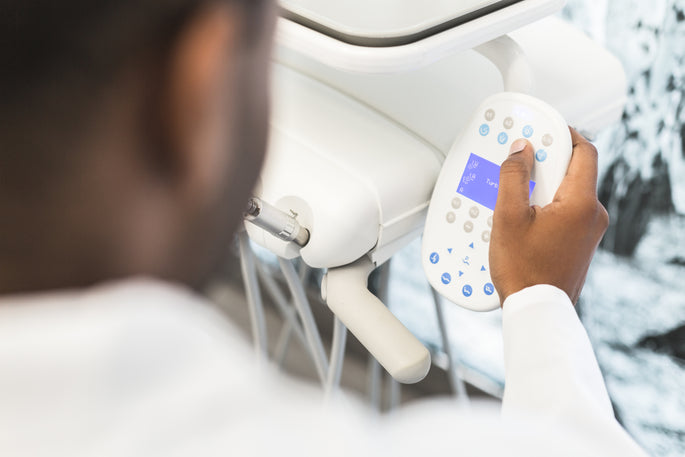
Industry applications for plastic springs
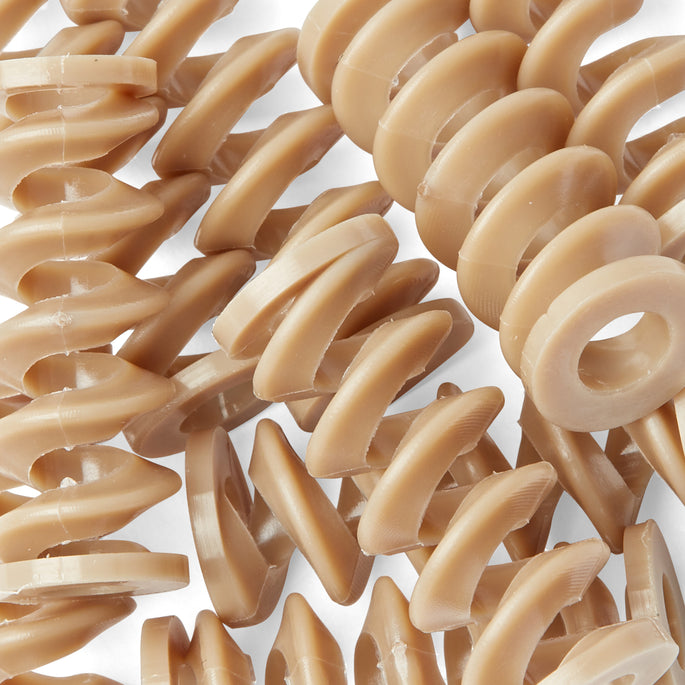
What are the benefits of using plastic for springs?
Ze bieden unieke voordelen die metalen schroeven niet kunnen bieden. Ze zijn zeer goed bestand tegen corrosie, waardoor ze ideaal zijn voor gebruik in zware chemische omgevingen waar metalen schroeven zouden degraderen. Door hun lichte gewicht verminderen ze het totale gewicht van assemblages, wat cruciaal is in industrieën zoals de lucht- en ruimtevaart en de auto-industrie, waar gewichtsbesparing leidt tot betere prestaties en een lager brandstofverbruik. Kunststof schroeven bieden ook uitstekende elektrische isolatie, waardoor kortsluitingen in elektronische apparaten worden voorkomen. Daarnaast hebben ze een hoge sterkte-gewicht verhouding, zijn ze niet-magnetisch en bestand tegen een breed temperatuurbereik. Deze eigenschappen maken kunststof schroeven essentieel voor toepassingen die duurzaamheid, betrouwbaarheid en gespecialiseerde prestatiekenmerken vereisen die metalen schroeven niet kunnen leveren.

